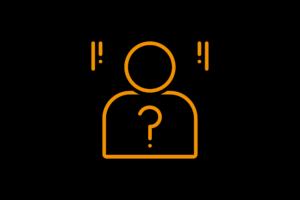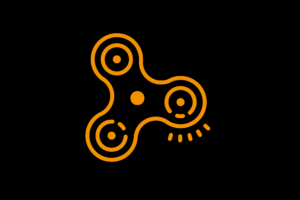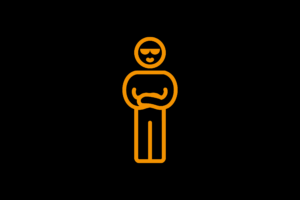Autistic people often have lower sensitivity OR higher sensitivity to noise and sounds. It is common for the levels of sensitivity to change according to how relaxed, stressed or tired the person is feeling.
The scientific name for our sense of hearing is the Auditory System.
Lower sensitivity
People who have lower sensitivity may not always notice sounds (this can be great if you have an annoying sibling!). This isn’t autistic people being rude or ignorant, it’s just that they may need sounds to be clearer, or an extra prompt to ensure information is heard. This could be a visual or physical prompt, like waving or tapping. It might take a bit of thinking or discussion to work out what is most helpful, because people are all unique so what is useful for one autistic person could be really annoying to another.
People who are less sensitive to noise might like loud music, noisy environments, or make a lot of their own noise perhaps without realising they are being loud (banging objects, slamming doors, singing and shouting).
Higher sensitivity
Having a higher sensitivity to sounds can sometimes be quite awesome – especially if you like being nosey because with higher sensitivity you can sometimes hear what people are saying, even when they are trying to be quiet or whisper! You might also get to appreciate all the beautiful sounds of nature that other people might not even notice.
However, there are a few different ways in which noise can sometimes be too much for autistic people:
Too loud: Sometimes sounds can just be too loud and feel overwhelming or even painful. People who have higher sensitivity to sounds often don’t like fireworks, aeroplanes flying above, hand driers, loud musical instruments, clapping and cheering.
TOP TIP – Ear defenders, headphones or noise reducing earplugs can be useful if you find sounds too loud.
Too quiet: It might sound strange to say that quiet places can be difficult when you are more sensitive to sounds, but sometimes when everything is quiet, small noises in the background can be very distracting and uncomfortable. This might be things that other people don’t even notice like a clock ticking, electricity buzzing or a bird tweeting.
TOP TIP – Ear defenders, headphones or ear plugs can be useful if you find these situations difficult, but you might also want to try listening to music or having a video/tv playing in the background so it’s less ‘silent’.
Too many sounds: Busy places can be overwhelming if there are lots of different sounds or conversations happening at the same time. This is because some people with more sensitive hearing find it difficult to filter out sounds in order to just focus on the thing they want to listen to. Instead they hear everything all at once – just one big jumbled mess of noise without understanding any of it, which can be very frustrating.
TOP TIP – Ear defenders, headphones or noise reducing ear plugs can help if you need to visit somewhere busy. However, if you want to be able to concentrate on a conversation it is probably best if you ask the other person if you can go or meet somewhere quieter to chat.



